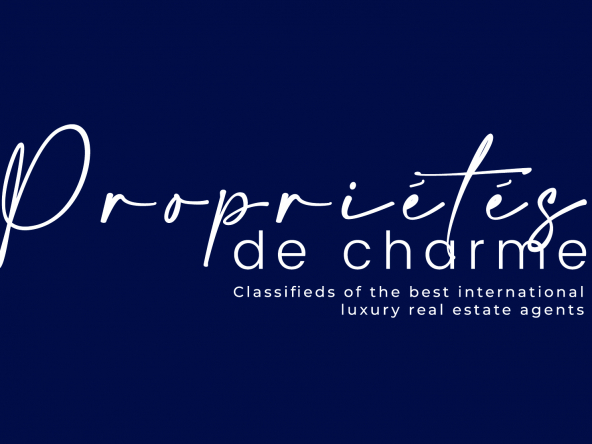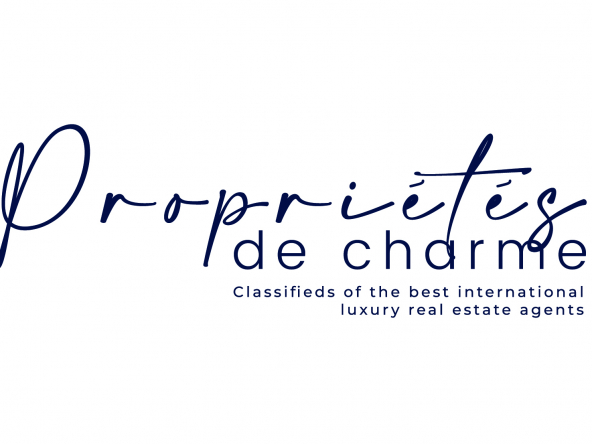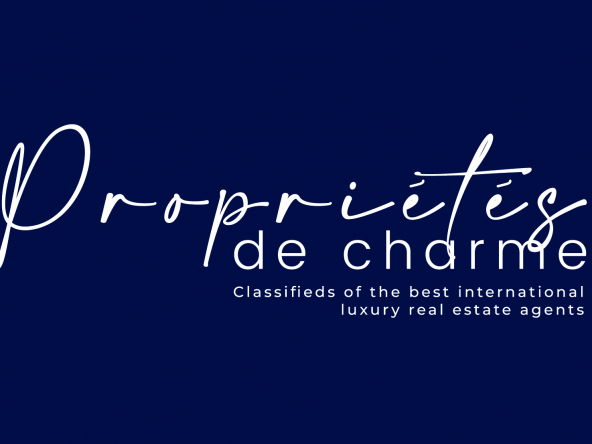Luxury real estate negotiator: are you paid well?
- Remuneration of a luxury real estate negotiator working in luxury real estate
- Employee status? Employee? EI individual entrepreneur under commercial agent status?
The remuneration of a luxury real estate negotiator working for a chain or large national luxury real estate brand may vary depending on the status of the employee. There are generally two possible statuses: that of employee or that of individual entrepreneur (EI) under the status of commercial agent.
- Employee Status: When a luxury real estate negotiator works as an employee for a large national luxury real estate brand, he signs an employment contract with this company. As an employee, he receives a fixed monthly or annual base salary, as well as social benefits such as social security contributions, insurance coverage, paid leave, and possibly bonuses or bonuses depending on his performance. The remuneration is relatively stable and predictable in this case. However, the salaried luxury real estate negotiator generally receives only a small portion of the commissions generated by real estate sales, as these are largely allocated to the real estate agency.
- Individual Entrepreneur (EI) Status under Commercial Agent Status: A luxury real estate negotiator can also work as an individual entrepreneur under the status of commercial agent. In this case, he signs a commercial representation mandate contract with the luxury real estate agency, but he is not an employee of the latter. He carries out his activity independently. As a commercial agent, the luxury real estate negotiator receives commissions for each sale or rental of luxury real estate carried out. Commissions are generally higher than those of an employee, because a greater share of the revenue generated is allocated to the sales agent. However, he must manage his own professional expenses, in particular travel costs, communication costs, and other expenses related to his activity. The commercial agent is responsible for his own social protection, which means that he must take out professional liability insurance and contribute to his social security and retirement. He does not receive the benefits of an employee, such as paid vacation or unemployment benefits.
The choice of status (employee or commercial agent) depends on the personal preferences of the luxury real estate negotiator, their financial situation, their level of independence, and their acceptance of professional risks. Employees have financial stability and social security coverage, but often earn lower commissions. Sales agents have the opportunity to earn more, but must manage their business independently and ensure their own social protection. The choice will therefore depend on the individual priorities of the luxury real estate negotiator.
Salary and commission figures for luxury real estate negotiators can vary significantly depending on several factors, including the real estate agency, real estate market, geographic location, negotiator experience, and property value. treated. Here are some concrete examples to illustrate these variations:
Employee:
- Base salary: A salaried luxury real estate negotiator can receive an annual base salary of between 30,000 and 60,000 euros, depending on the agency and their experience.
- Bonus or bonus: In addition to the base salary, he may receive bonuses or bonuses depending on his performance. For example, a bonus of 5,000 euros for reaching a certain sales target.
What are the average commissions paid to negotiators under independent agent status?
The transfer of commission from a real estate negotiator generally depends on the agreement between the agent and the real estate agency. Typically, real estate negotiators negotiate a commission percentage with their agency, which can vary depending on many factors. If the real estate agency receives €50,000 including tax for a transaction, here is how this could be distributed between the agent and the agency based on a standard commission retrocession:
- The real estate agency can transfer a percentage of this commission to the agent, for example, 50%.
- In this case, the agent would receive 50% of €50,000, or €25,000 including tax.
- The other half, i.e. €25,000 including tax, would be kept by the real estate agency to cover its costs and generate profits.
It is important to note that these percentages may vary depending on the agreement between the agent and the agency. Some agents may negotiate higher or lower kickbacks based on their experience, sales volume, value of properties handled, or other factors. The net amount the agent receives also depends on his or her own business expenses, such as travel expenses, advertising costs, and other costs associated with his or her business.
In summary, the commission retrocession is generally negotiated between the real estate agent and the agency, and it can vary depending on several factors. In the example given, the agent could receive 50% of the total commission of €50,000 including tax, or €25,000 including tax. However, percentages may vary depending on individual agreements.
It all depends on whether the agency covers all advertising costs and expenses or whether there are remaining advertising expenses paid by the negotiator?
Advertising fees and expenses may vary depending on the compensation structure and agreements between the negotiator and the real estate agency. In the luxury real estate sector, these elements can be particularly important due to the need to adequately promote high-end real estate. Here's how this can influence the negotiator's compensation:
- Advertising costs covered by the agency: Some luxury real estate agencies can assume all or part of the advertising costs linked to the promotion of real estate. In this case, these costs are usually deducted from the total commission generated by the sale or rental. This means that the trader receives his share of commission after deducting advertising costs.
- Advertising Fees Paid by Dealer: In other situations, the dealmaker may be responsible for their own advertising expenses for promoting luxury real estate. These costs may include creating promotional materials, online advertising, conducting virtual tours, etc. In this case, it is essential that the negotiator takes these expenses into account when calculating their net remuneration.
The distribution of advertising costs and their impact on remuneration can be negotiated between the negotiator and the agency. In the luxury sector, it is common for luxury real estate agencies to cover a significant portion of advertising costs, as this helps maintain a quality image and effectively promote high-end real estate. It can also allow the negotiator to focus on their primary role of selling or leasing.
It is recommended that negotiators clarify these aspects when negotiating their contract with the luxury real estate agency to avoid confusion and ensure they are compensated appropriately.
Three examples of operating accounts for independent real estate negotiators. These examples illustrate different financial situations depending on the volume of activity and associated costs.
Example 1: Early career negotiator
- Income:
- Sales commissions: €25,000
- Rental commissions: €5,000
- Costs and expenses:
- Advertising and marketing costs: €2,000
- Travel and transport costs: €3,000
- Home office costs: €1,200
- Telephone and Internet costs: €1,000
- Professional liability insurance costs: €500
- Accounting and administrative costs: €800
- Profit before taxes: €30,000 – €8,500 = €21,500
Example 2: Experienced negotiator
- Income:
- Sales commissions: €100,000
- Rental commissions: €20,000
- Costs and expenses:
- Advertising and marketing costs: €5,000
- Travel and transport costs: €7,000
- Home office costs: €2,400
- Telephone and Internet costs: €1,200
- Professional liability insurance costs: €800
- Accounting and administrative costs: €1,000
- Profit before taxes: €120,000 – €17,400 = €102,600
Example 3: High-Performing Luxury Negotiator
- Income:
- Luxury real estate sales commissions: €250,000
- Luxury real estate rental commissions: €50,000
- Costs and expenses:
- Luxury advertising and marketing costs: €20,000
- Travel and transportation costs for international visits: €30,000
- Home office costs converted into a luxury space: €5,000
- Premium phone and internet charges: €2,000
- High professional liability insurance costs: €2,000
- Accounting and administrative costs: €2,500
Profit before taxes: €300,000 – €61,500 = €238,500
These examples illustrate how income, costs and expenses can vary depending on experience level, sales volume and real estate industry (including the luxury sector). Actual figures may vary depending on many other variables, including the negotiator's personal costs, real estate market fluctuations and local tax rates.
- Charming Properties: beautiful residences and luxury properties for sale in France
- Promote Your Luxury Real Estate on Charming Properties
- Find our Luxury Properties for sale as well as our articles on Google , Bing , and social networks!




